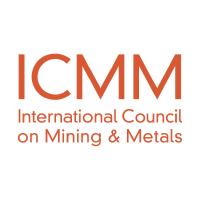ICMM, IUCN and UNESCO Host Workshop Biosphere Reserves and World Heritage: Engagement With Extractive Industries at IUCN World Congress
Yesterday, at the International Union for Conservation of Nature (IUCN) World Conservation Congress, the International Council on Mining and Metals (ICMM) held a joint workshop in partnership with UNESCO and IUCN.
Sep 10, 2012 1:05 PM ET
(3BL Media) September 10, 2012 - Yesterday, at the International Union for Conservation of Nature (IUCN) World Conservation Congress, the International Council on Mining and Metals (ICMM) held a joint workshop in partnership with UNESCO and IUCN. Participants from the conservation and extractive industry sectors explored how the extractives sector interacts with the world’s unique areas for biological and cultural diversity.
After a brief introduction by Guy Debonnet (UNESCO, Chief, Special Projects Unit, Programme Specialist Natural Heritage World Heritage), Tim Badman (IUCN, Director World Heritage Programme), Samy Mankoto (UNESCO, Man and Biospheres Programme), and Anne-Marie Fleury (Director, Environment, ICMM) participants took part in an interactive quiz to begin to unravel the complexities at the heart of the conflicts between extractives and World Heritage. They also explored the value of “no-go” commitments, such as the almost 10 year old commitment made by ICMM member companies not to explore or mine in World Heritage properties. Rachel Asante-Owusu, Project Officer for the Business and Biodiversity Programme of IUCN, commented that “Whilst the no-go commitment is a valuable tool in delivering conservation outcomes for World Heritage Sites -as the World Heritage and Extractive Industries report highlights- more needs to be done by various stakeholders including State Parties”. Pippa Howard, Director, Business and Biodiversity at Fauna & Flora International, said “A lot of the conflict and frustration stems from a lack of clarity around how national governments interpret what is allowed and what isn’t within World Heritage and Biosphere Reserve zones. We feel there is an imperative for the World Heritage Convention and Biosphere Reserves Steering Group to strengthen their frameworks and provide clarity on requirements. We all want clear rules." This workshop follows the publication of an independent report on the current World Heritage processes and practices with regard to the relationship between the extractives sector and natural World Heritage Sites. The study was managed by the independent consultant, Dr. Stephen Turner. It was supported by Shell, JP Morgan, UNESCO and IUCN, with whom ICMM has a five-year Memorandum of Understanding. About ICMM The International Council on Mining and Metals (ICMM) was established in 2001 to improve sustainable development performance in the mining and metals industry. Today, it brings together 22 mining and metals companies as well as 34 national and regional mining associations and global commodity associations. ICMM serves as an agent for change and continual improvement. Our vision is one of leading companies working together and with others to strengthen the contribution of mining, minerals and metals to sustainable development. About IUCN The International Union for Conservation of Nature (IUCN) is the world’s oldest and largest global environmental organization, with more than 1,200 government and NGO members and almost 11,000 volunteer experts in some 160 countries. IUCN helps the world find pragmatic solutions to our most pressing environment and development challenges.
